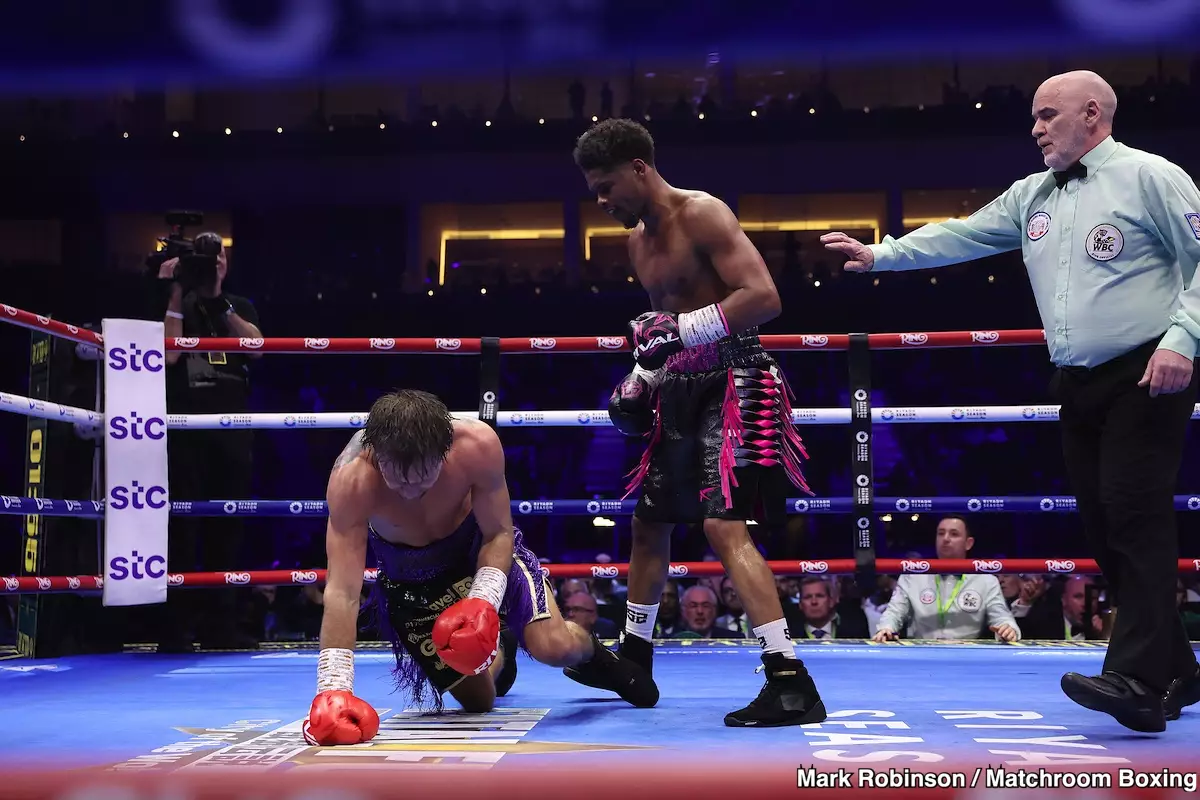The world of boxing is often a battleground not just within the ring, but also in the realm of opinions and critiques. Recently, this has become evident with Rolando ‘Rolly’ Romero’s dismissive comments regarding a potential match-up between Gervonta Davis and Shakur Stevenson. Romero’s statement sheds light on the ongoing debate about fighters’ styles, marketability, and the essence of entertainment in boxing.
Romero has made it clear that he believes Shakur Stevenson would not provide a worthy challenge for Gervonta Davis. He asserts that Stevenson’s style, which he describes as evasive and almost flighty — akin to a “grasshopper” — makes for a less-than-engaging bout. Romero cites Stevenson’s recent performance against Edwin De Los Santos, suggesting that Shakur’s tendency to avoid engagement could escalate to the point of him literally “jumping out of the ring” to avoid being knocked out by Davis. This characterization brings to the forefront a significant discussion in boxing: the balance between defensive technique and the need for compelling entertainment.
Indeed, Stevenson is known for his technical skill and defensive prowess, which often means he prioritizes avoiding damage over inflicting it. Romero’s critique poses a fundamental question: Does this cautious approach dilute the excitement of a fight? Many fans gravitate towards fighters who display aggression and the willingness to engage, which is where Romero sees Stevenson faltering.
The Financial Aspects: What’s at Stake for Gervonta Davis?
Romero also emphasizes the financial implications surrounding a potential showdown between Davis and Stevenson. According to him, Gervonta Davis would need significantly more motivation — both in terms of financial reward and the challenge presented — to consider fighting Stevenson, particularly given his perception of Stevenson’s lack of knockout power. This sentiment resonates not only as a reflection of Davis’s mercenary mentality but also as a commentary on the current state of boxing economics, where fights are often dictated more by financial gain than by the pursuit of glory.
Moreover, while Eddie Hearn’s optimism regarding the possibility of a Davis-Stevenson fight adds a layer of intrigue, it remains essential to consider the likelihood of such an event. Would both parties agree on terms that make sense financially while also ensuring a matchup that excites fans?
Romero posits that before engaging in a high-profile match against someone like Davis, Stevenson should strive to improve his knockout power. He suggests that if Stevenson can demonstrate a more aggressive pursuit of knockouts — ideally through a successful streak of stoppages — it might increase the allure of a fight with Davis. This perspective highlights a broader issue in boxing, namely the need for fighters to constantly evolve and enhance their skills to remain relevant in an ever-competitive landscape.
Romero does concede that Stevenson possesses considerable technical abilities, describing his bouts as “masterpieces.” However, he challenges Stevenson’s inclination to avoid knockout opportunities, hinting that such reluctance could lead to a waste of talent and an unsatisfactory viewing experience for fans. He argues that fans crave not just skillful displays, but also the thrill of transitory bouts where stakes are high and excitement is palpable.
The Future: Does Stevenson Need to Change His Approach?
At its core, Romero’s outspoken disagreement with Stevenson’s style raises questions about the evolution of fighters in modern boxing. As fans increasingly desire knockouts and action-packed fights, fighters may find themselves adapting their strategies to meet these expectations. For Stevenson, the challenge lies in balancing his natural defensive skills with a more aggressive pursuit of victory — a task that may redefine his career trajectory.
As the boxing world watches closely, the real question remains: Will Shakur Stevenson recognize the need for change, and will Gervonta Davis be willing to chase the fight that fans are clamoring for? The answers will ultimately shape the landscape of the sport moving forward, and both fighters may have much to prove in order to solidify their legacies within the storied annals of boxing history.

